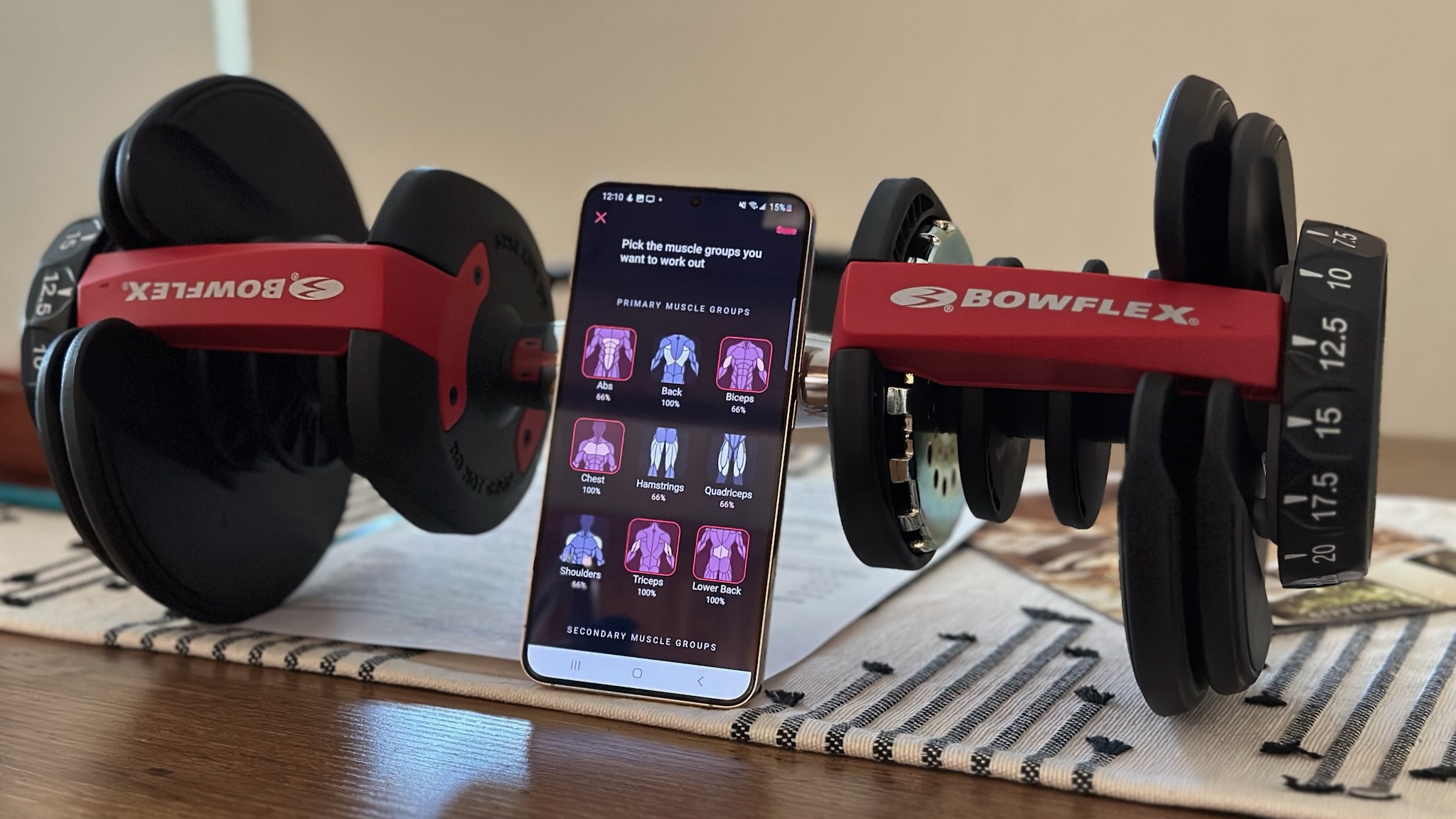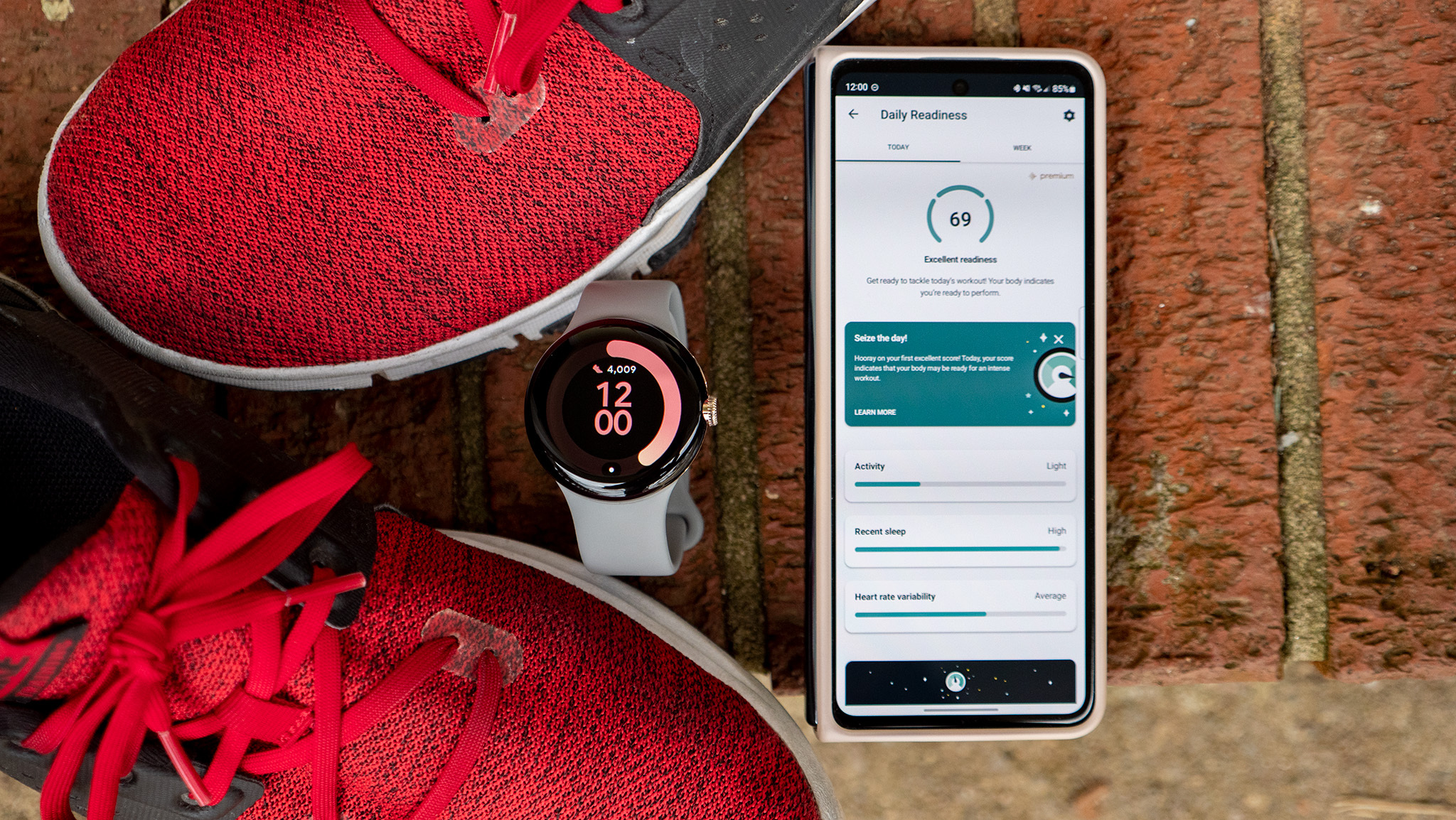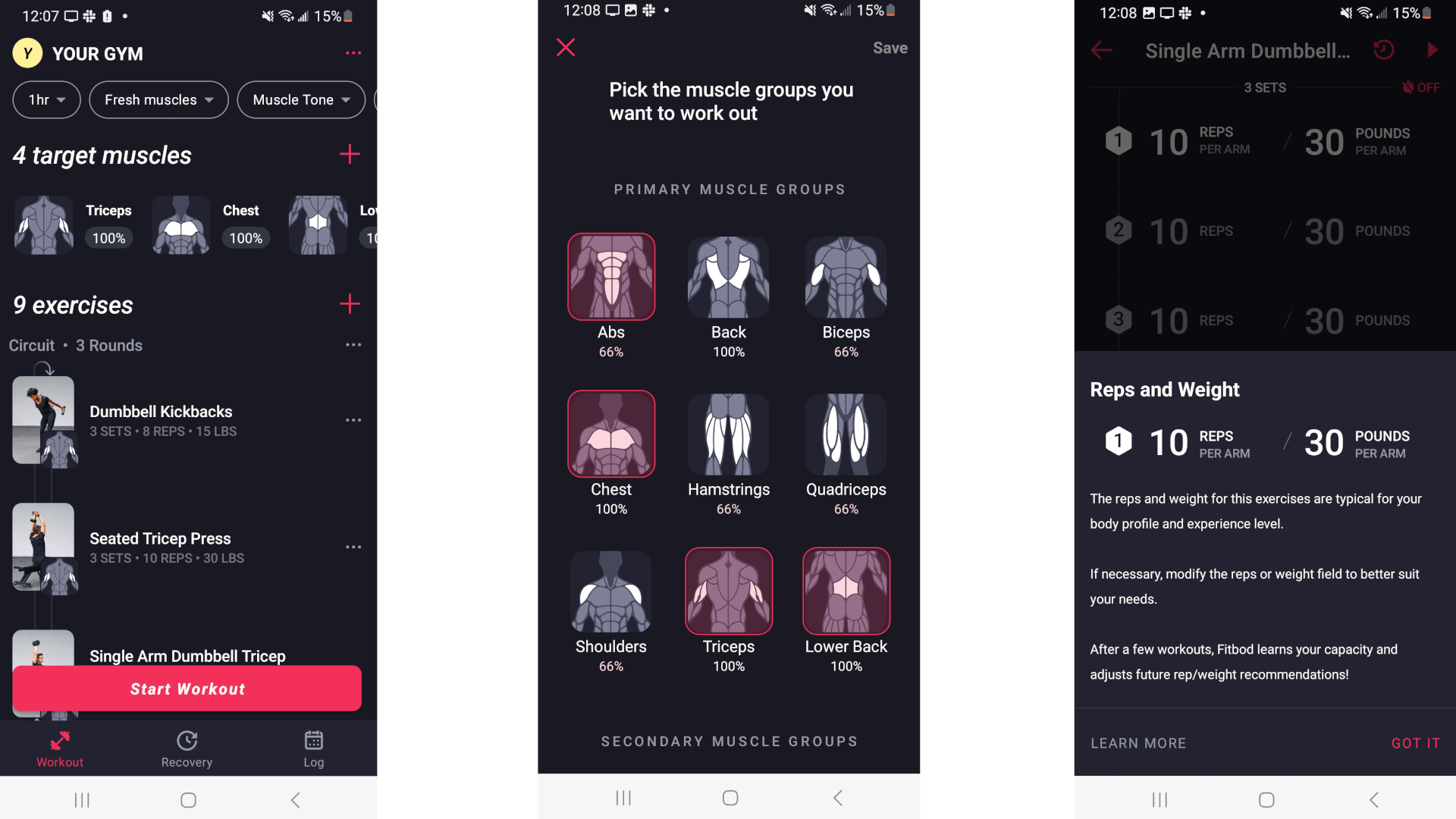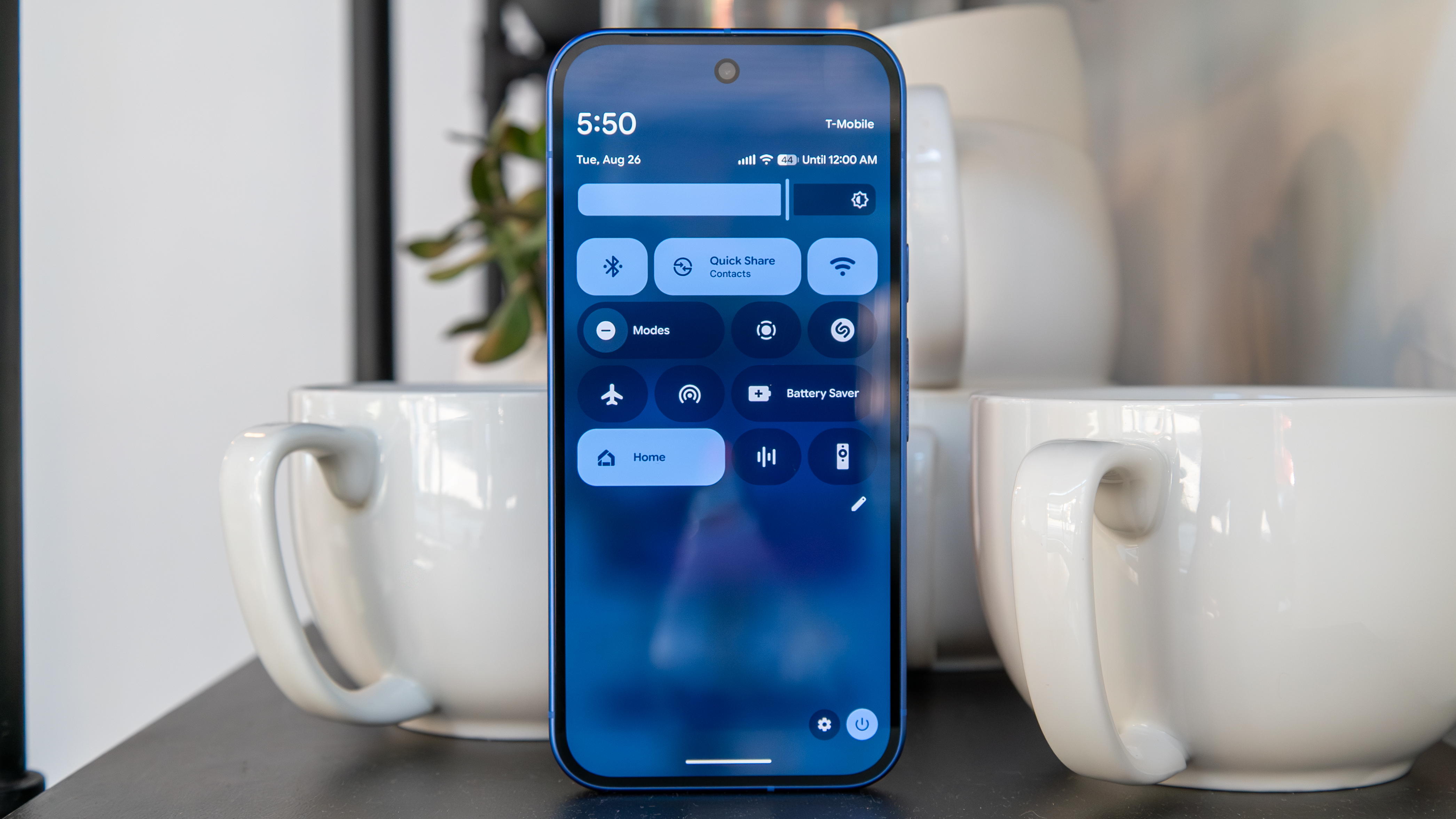This fitness app takes all the guesswork out of at-home bodybuilding
Fitbod has become my favorite DIY cross-training app that avoids all the traps of a typical fitness subscription.

Personal fitness apps in 2023 can be overwhelming. It's very easy to dive in, overtrain without proper guidance, and burn out once the optimism of your "New Year's Resolutions" phase ends. So when I was looking for an at-home app to improve my strength and hit my 2023 fitness goals, I was elated when Fitbod seemed to hit the nail on the head.
All the best fitness apps today all want to justify the subscription price by acting as an overly nosy personal trainer — without the person. They give you workout videos with professionally-shot trainers calling you their friend. They expect you to log every calorie. And they try to cover every fitness base, from yoga to HIIT or upper to lower body.
You also have fitness apps that simply log your exercises, but these expect you to actually know what you're doing. I've tried a gym membership for cross-training in the past but found it difficult to maintain a self-guided muscle-building rhythm without inevitably overdoing it on a specific muscle and sidelining myself.
Fitbod is endlessly customizable, learns your ability level quickly, and stops you from overtraining some muscles while neglecting others.
I wanted something both very simple and very rare: an at-home exercise app that would target specific body parts or muscle groups to help me get stronger, but would also recognize my limits and cater exercises to my needs — without the cost of an actual trainer. Something that a video-based app like Apple Fitness+ or Fitbit Premium, which can only target difficulty levels or general body areas, can't do.
My partner, who does more at-home HIIT and core work than I do, introduced me to Fitbod, a fitness app available on Android/ Wear OS and iOS/ Apple Watch. And it checked off everything I needed as a cross-training tool with my primary running workouts.
When you open Fitbod up, it'll ask for your previous weightlifting experience, your workout goals (aka build muscle, lose weight, increase endurance, improve at a sport, etc.), where you typically exercise, what kinds of equipment you can access, your current height/weight/age, and other data.
From that point, it'll employ an algorithm to generate a customized workout that matches your goals and targeted muscle groups with your own equipment. You can change the criteria of a workout — the time, muscle splits, difficulty, focus on bodybuilding or strength — and it'll regenerate a new series of reps and exercises in a few seconds.
Get the latest news from Android Central, your trusted companion in the world of Android
Also, unlike a workout video with predetermined exercises, you can select any specific exercise and tell the app to replace it with something similar that targets the same group, or choose it more or less often depending on your preferences. If you find something too difficult or distasteful, it's more fun to find an exercise that's your speed instead of feeling ashamed when you have to use the "modification."
Or, if you're more of a gym regular who knows what exercises work for you, you can create a workout from scratch, from which the app will spin off its own routines.

AI has been a controversial topic these days, and it's fair to say that an actual personal trainer could do all of this and better motivate you than the spartan, threadbare Fitbod app.
It's definitely a "DIY" experience, in that when you complete exercise reps, you have to log each one as complete so it can time you, plus tell Fitbod how difficult the exercise was for you, rather than flow directly into something new. The algorithm needs this info to better judge your skill level, but it's better for someone who needs guidance than for an expert going into the zone.
Compare that to using the Oculus Quest 2 for fitness, which is much less focused and doesn't do much beyond cardio, but is certainly much more motivational and seamless.
Still, Fitbod has been transformative simply because it introduces me to exercises that I would have struggled to find on my own. Rather than endlessly Google and bookmark articles like "Best at-home exercises to lose weight/ build core strength/ etc.," you just get shown useful exercises with attached how-to videos showing the proper form.
Some fitness apps track your fatigue and recovery, but few will specifically note that your calves or biceps are worn out in particular.
It also pushes me to stop working out a muscle before I overdo it. While Garmin Body Battery or Fitbit Daily Readiness will track my overall energy level, it won't specifically warn you if your legs or back are likely to give out on you if you persist.
Fitbod shows a recovery percentage next to each muscle group so you don't overwork them and hinder muscular progress. Instead, it'll target more refreshed (or neglected) muscle groups instead, ensuring you don't feel like you're just waiting around when your biceps or abs need a break.
I generally prefer simple cardio tracked by a fitness watch for my daily exercise, which means I've neglected the muscles that don't factor into hitting the pavement. So I entered 2023 focused on simple bodyweight-only exercises like push-ups and planking that I already knew.
Fitbod expanded my horizons well beyond the basics. Even if I end up unsubscribing down the line, I'll move on with a greater knowledge of which exercises will help me bulk up or slim down in all the core areas.
The app costs $80/year or $13/month after your first three workouts, so it's about the same price you'd pay for a more in-depth and well-rounded app like Apple Fitness+; but I prefer Fitbod simply because I want something focused rather than overwhelming.
Fitbod
Fitbod lets you complete a workout set using gym equipment or limited at-home tools, for short or long periods, to build muscle or focus on strength, targeting specific areas or an all-around selection. The customization makes it a great option for both gym newbies and more experienced athletes. It's one of the best fitness apps available today.
See at Google Play Store | Apple App Store

Michael is Android Central's resident expert on wearables and fitness. Before joining Android Central, he freelanced for years at Techradar, Wareable, Windows Central, and Digital Trends. Channeling his love of running, he established himself as an expert on fitness watches, testing and reviewing models from Garmin, Fitbit, Samsung, Apple, COROS, Polar, Amazfit, Suunto, and more.


